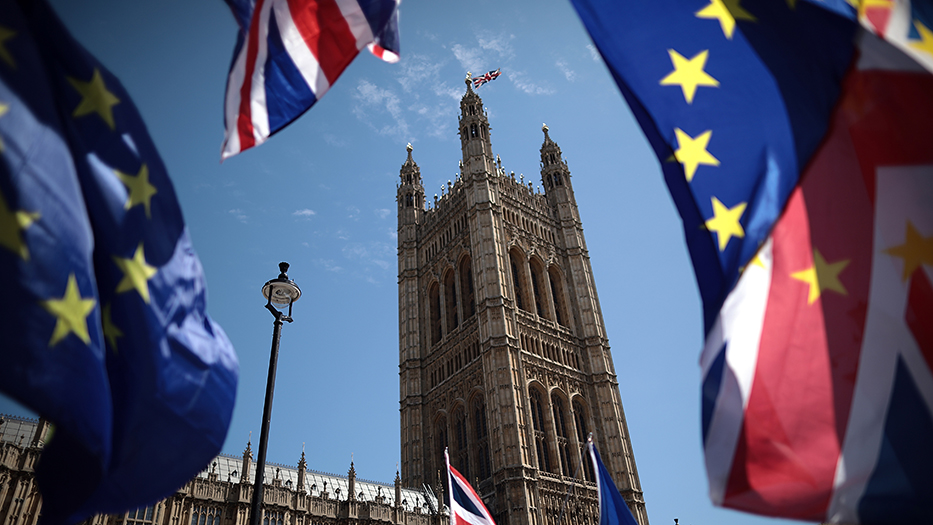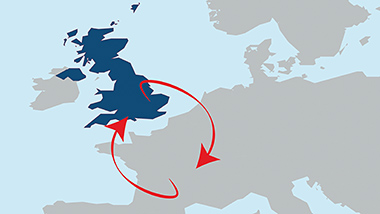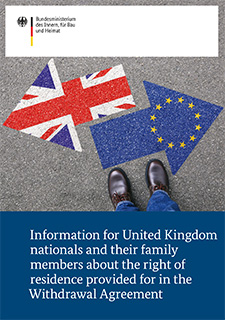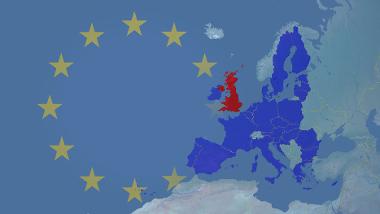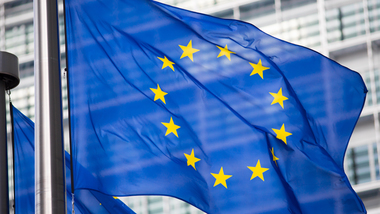Brexit
Article Migration
From 1 February 2020, the United Kingdom is no longer a Member State of the European Union. Following the end of the transition period on 31 December 2020, UK nationals living in Germany must act to safeguard their right of residence - new residence documents are to be issued in the course of the year 2021.
The UK Withdrawal Agreement entered into force on 1 February 2020 after being signed by the UK and the European Union (EU).
Initially, nothing changed for citizens and businesses. During the transition period in 2020, EU law continued to apply in and for the UK. However, the UK was not able to participate in decision-making in the EU institutions. During this time, the UK continued to be part of the EU single market and customs union.
As of 1 January 2021, UK nationals and their family members in Germany must act to safeguard their right of residence in Germany. You can find more information in the document "Information for United Kingdom nationals and their family members about the right of residence provided for in the Withdrawal Agreement", below.
What did the EU and the UK agree on in the Withdrawal Agreement?
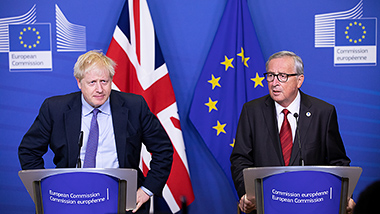 Boris Johnson and Jean-Claude Juncker, each standing at a lectern with the British and EU flags in the background (Larger version opens in new window)
Boris Johnson and Jean-Claude Juncker, each standing at a lectern with the British and EU flags in the background (Larger version opens in new window)
Source: European Union, 2019
Boris Johnson and former Commission President Jean-Claude Juncker in Brussels on 17 October 2019
The Withdrawal Agreement is not identical with the agreement on future relations between the UK and the EU that was reached at the end of 2020.
After the November 2018 agreement did not receive the necessary support in the House of Commons, the chief negotiators agreed on a slightly modified package on 17 October 2019. In addition to the Withdrawal Agreement, this package included key elements governing the future relations between the UK and the EU, which, after further negotiations, were translated into an additional agreement that was concluded at the end of 2020.
The right of residence of UK nationals who have been living in Germany so far is governed by the first of these agreements, i.e. the Withdrawal Agreement. The following key elements are at the core of this agreement: comprehensive protection for the rights of Union citizens living in the UK and of UK nationals living in the EU; to the extent that they have exercised their right to freedom of movement so far, they may, as a rule, continue to live, work and study in their respective host country and will be continue to be entitled to social security. The agreement also defined the UK’s financial obligations. The European Court of Justice is to have an important role in monitoring and implementing the agreement. The agreement also defined the transition period mentioned above.
A special provision on Northern Ireland guarantees the integrity of the EU single market; at the same time, it also ensures that there will be no checks at the border between Ireland and Northern Ireland, and that the Good Friday Agreement remains fully applicable. The provision specifies that Northern Ireland will remain part of the British customs area while all relevant EU single market provisions and the EU Customs Code apply to Northern Ireland. The necessary border checks and collection of duties will be carried out at the entry points to the Irish island in Northern Ireland.
You can find more information on the status of negotiations at the Federal Foreign Ministry website.
How the Federal Government is preparing for Brexit
It has been and continues to be a central concern of the Federal Government to make sure that people and businesses are affected as little as possible. For this reason, it is crucial that citizens and businesses in Germany keep up to date on the impact of Brexit. They are all called upon to thoroughly prepare in time for the consequences of the UK’s withdrawal from the EU.
The BMI’s focus in this is on residence rights of UK nationals living in Germany and their families, and on measures for those applying for naturalisation.
The Federal Ministry of the Interior and Community provides brochures and FAQs on these matters.
For the expert public and for citizens interested in more details, the Federal Ministry of the Interior and Community has produced further information addressing questions of residence rights after Brexit and providing more detailed information regarding the legal status of British citizens, their family members and persons close to them applicable as of 1 January 2021.

